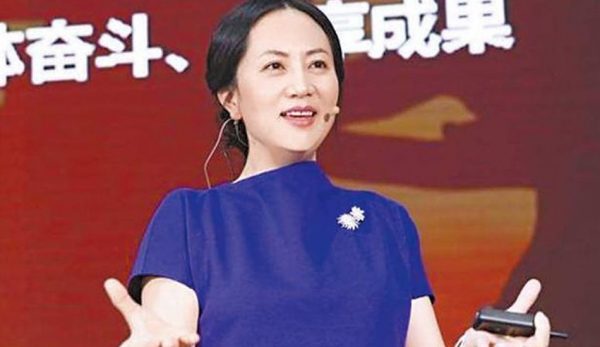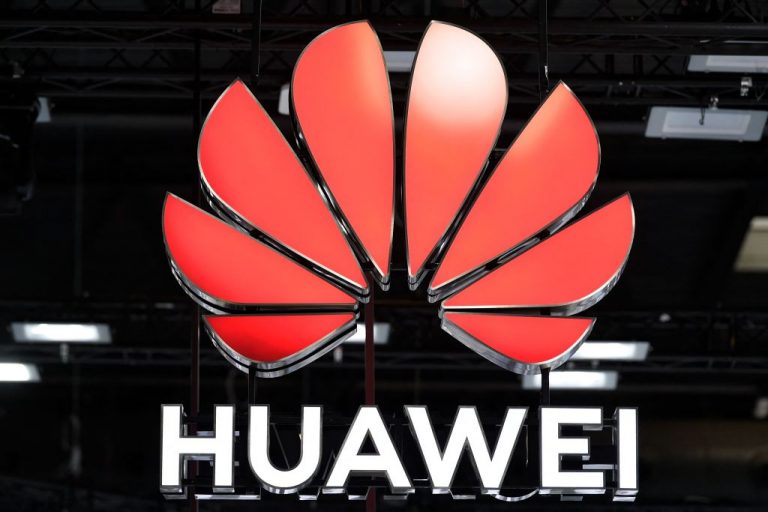Chinese telecom maker Huawei announced Monday, March 28, that despite a decrease in sales, its overall profit rose by 76 percent in 2021.
The company claimed 2021 revenue of 636.8 billion yuan ($99.9 billion), down 28.6 percent from the previous year and said its profit had risen by 75.9 percent to reach 113.7 billion yuan ($17.8 billion), despite being “blacklisted” and having sanctions imposed by the U.S. in 2019.
Huaiwe’s Chief Financial Officer, Meng Wanzhou, also made her first public appearance on Monday since being released by Canadian authorities last fall. Meng was arrested in Vancouver in 2018 at the request of the U.S. government after being accused of “lying to banks in Hong Kong about Huawei’s dealings with Iran.”
In return, Chinese authorities arrested two Canadians in an attempt to force the Canadian government to release Meng. Both were freed as Meng returned home in September last year. State media hailed Meng’s release as a diplomatic victory for China. The top executive is the daughter of Huawei founder Ren Zhengfei.
“Our overall financial resilience is strengthening,” Meng said during a news conference at Huawei headquarters in the southern city of Shenzhen. “The company is more capable of dealing with uncertainty.” The metropolis, home to nearly 13 million people, is largely regarded as China’s tech hub.

Meng also alluded briefly to her personal ordeal, saying that during her time away, the world had “changed so much.” Meng was held under house arrest by Canadian authorities for nearly three years while she awaited legal proceedings.
“Over the past six months, I’ve been learning and trying to catch up,” she said.
Huawei on ‘survival mission’ following US sanctions
Success
You are now signed up for our newsletter
Success
Check your email to complete sign up
Over the past decade, Huawei has risen to become a symbol of China’s rapidly growing tech sector. When the US-China trade and technology rivalry intensified in 2018 under former U.S. President Donald Trump’s administration, the company was caught in the crosshairs as reports of cybersecurity and industrial espionage were widely reported.
READ MORE:
- Why the US Government Blacklisted China’s Huawei
- Former Huawei Director and Cybersecurity Expert on Trial in Poland for CCP Espionage
- UK, Canadian Intelligence Agencies Raise the Alarm Over Chinese Espionage Activity
The tech firm has denied that its cellphones violated users’ privacy and attributes its profitability to “improved product portfolios and more efficient internal operations.” It also said its HarmonyOS software was used in more than 220 million Huawei devices as of 2021, “becoming the world’s fastest growing mobile device operating system.”
U.S. policymakers, however, have long warned that Huawei’s devices pose a national security risk, alleging that China could utilize the company’s technology to infiltrate state secrets, and citing the company’s close ties to China’s communist regime as a major concern. The company has repeatedly denied those allegations.
Huawei has been forthcoming about the long-lasting damage from Washington’s crackdown. In 2020, the company declared that “survival” was the goal, with “nonstop aggression from the US government” stifling operations and halting sales.
The company sold its lower-priced Honor smartphone brand to a government-led investment group in November 2020 in hopes of reviving sales by separating it from sanctions on the parent company. Its new software HonorOS received permission from the U.S. government to resume buying processor chips and other technology.
Huawei has since branched out into other sectors and said its unit industrial and government customers had 102.4 billion yuan ($16.1 billion) in 2021 revenue. The company said it had also launched products for transportation, finance, energy and manufacturing and dedicated coal mine, ports and “smart road” teams but said the sanctions cut off its ability to obtain critical components for its smartphone devices.














